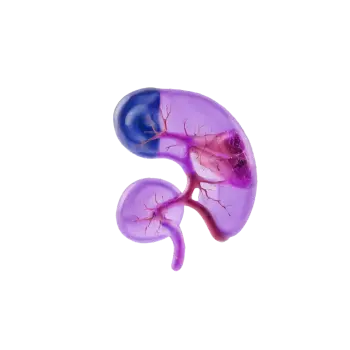What are phosphate and phosphorus?
Phosphorus is a vital element that is produced from natural minerals. The largest amount is stored in the skeleton. Phosphorus is important for the formation and strengthening of bones and teeth and is also important for the balance of acid and base in the body as well as energy production for the body's energy-demanding functions.
We get phosphorus through our diet, mainly protein-rich foods and dairy products such as milk, cheese, meat and legumes.
Phosphate is an additive, it often occurs in combination with, for example, sodium and calcium which form salts - these are called phosphates.
Phosphates are often used as food additives to, for example, make meat more tender or as anti-caking agents and acidity regulators. If additives are used in food, these must be stated in the list of contents.
How much phosphorus/phosphate is the recommended daily intake?
The recommended daily intake of phosphorus/phosphate differs depending on, among other things, age and during pregnancy and breastfeeding. For women who are pregnant or breastfeeding, the recommended daily intake is 700 milligrams and 900 milligrams, respectively. For men and women who are not pregnant or breastfeeding, 600 milligrams is the recommended daily intake.
Why phosphate is analysed
Calcium metabolism disorder is a disturbance in the body's ability to handle calcium effectively. This disorder can be caused by a variety of factors, including parathyroid disease, vitamin D deficiency, malabsorption, and kidney disease. In long-term parenteral nutrition and unclear states of fatigue and cramps, phosphate is also a good marker to analyse.
What can an elevated value of phosphate mean?
Elevated levels of phosphate can be due to renal insufficiency, reduced function of the parathyroid glands, (hypoparathyroidism), acidosis, prolonged immobilization, lymphoma, leukemia and active acromegaly.
What can a low value of phosphate mean?
Decreased levels of phosphate may be due to excessive function of the parathyroid glands, (hyperparathyroidism), vitamin D deficiency, malabsorption, chronic alcoholism, alkalosis, sepsis, insulin and glucose administration, long-term parenteral nutrition and hypophosphatemic rickets.
Symptoms of reduced kidney function
The symptoms of chronic kidney failure, or chronic kidney failure, develop slowly. They can only appear when kidney function becomes so impaired that waste products begin to accumulate in the blood, then they can express themselves like this:
- loss of appetite
- nausea
- vomiting
- fatigue
- itching
- impaired muscle power.


































